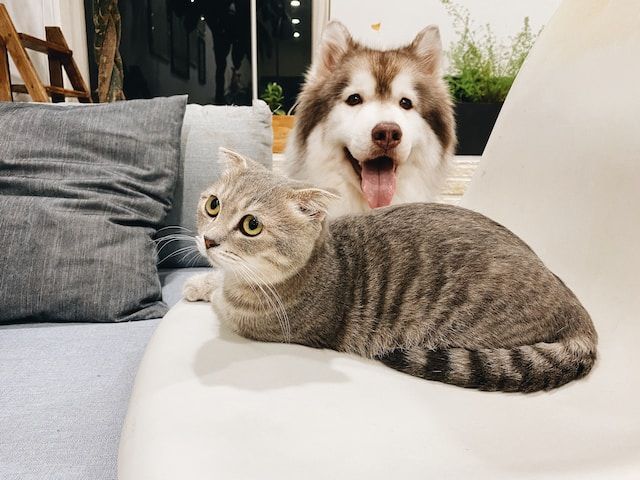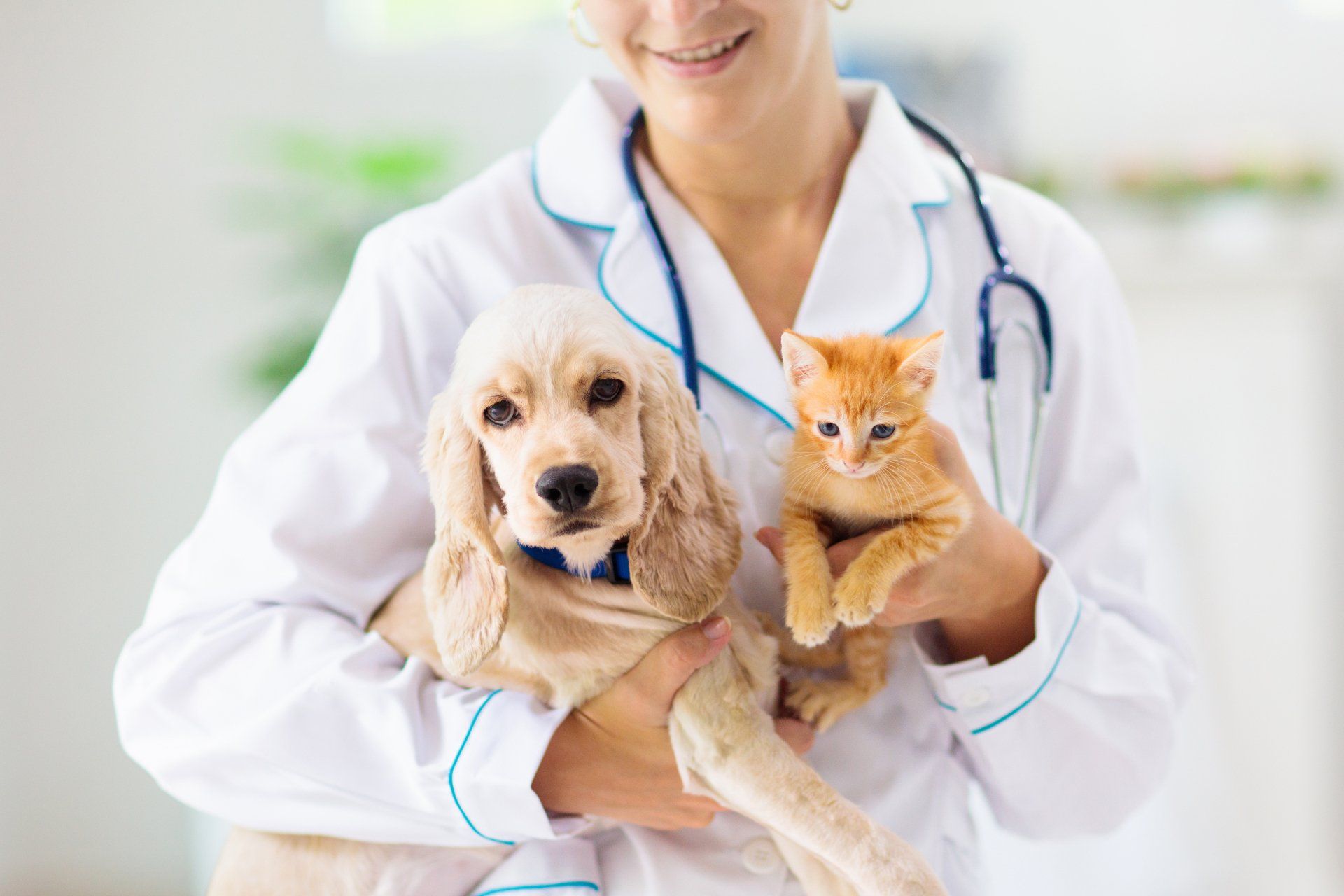Spays and Neuters

Photo by Tran Mau Tri Tam ✪ on Unsplash
Spaying and Neutering
The term “spay” refers to an ovariohysterectomy—the removal of the ovaries and uterus. The term neuter can actually refer to an ovariohysterectomy, but commonly refers to castration—the removal of the testes. We recommend spaying and neutering animals at 6 months of age, but the procedures can be performed on pets of all ages.
Spaying and neutering provide significant health advantages for your pet. Un-spayed female dogs have a 25% chance of contracting cancer. Dogs spayed before their first heat cycle have less than a 0.5% chance of developing breast cancer. After 2-3 heat cycles there is little additional benefit from spaying for preventing breast cancer. Cats are also prone to breast cancer but have a much higher rate of malignancy–about 85-95%.
Pyometra
Pyometra is a uterine infection common in middle-age un-spayed female dogs and sometimes cats. It typically occurs about 30 days following a heat cycle. Hormone changes at that time make the uterus susceptible to bacterial infection. The uterus fills with pus and can become quite large. The uterus could potentially rupture and cause serious, possibly fatal abdominal infection. These cases are emergencies and require urgent and expensive medical and surgical treatment. Pyometra can be prevented by having your pet spayed. It is much better to have surgery performed on a healthy young pet than one that is older and sick.
Some pregnancies result in dystocia or difficult birth and require a Cesarean section to save the lives of the mother and babies. This situation is considered an emergency and the surgery needs to be performed as soon as possible. The procedure can be expensive, especially when it must be done after hours as many do.
Spays and Neuters
Neutering male dogs prevents testicular cancers, benign prostatic hyperplasia and some prostatic cysts that occur in older un-neutered dogs. It also prevents or reduces the urge to roam in search of a mate that can result in dogfight wounds (which can be extensive), being hit by a vehicle, various other injuries, and getting lost. Neutering male cats prevents the development of the very strong tomcat urine smell, reduces urine spraying and fighting (which commonly causes abscess formation).
Spays and neuters are common procedures and are performed nearly every day in our clinic. There is always some risk, but serious complications are rare. Most pets are up and around the next day with some soreness for a few days afterward. Pain medication is available to ease the recovery period.

What Our Clients Say
C. Mayfield
I have seen a lot of changes since I have been a client at Shackleford Veterinarian Clinic since 1996. The best change of all was when Dr. Barron started. You will not find a better veterinarian or staff!
Tiffany Williams
SRVC answered all of my questions and even allowed me to come back after my appointment to update and add information to my pet's health certificate. I would highly recommend this vet to anyone. They go above and beyond expectation.
Ashley Hurst
I will forever be thankful that Dr. Barron was recommended by my neighbor! My pets have been treated at several different veterinary clinics, but no one
has ever compared to Dr. Barron. The front desk staff and vet techs could not be kinder!




